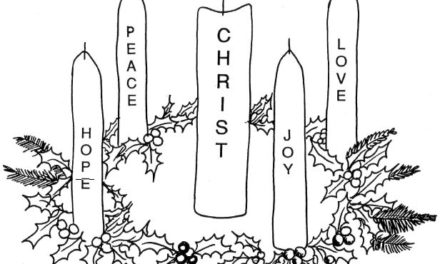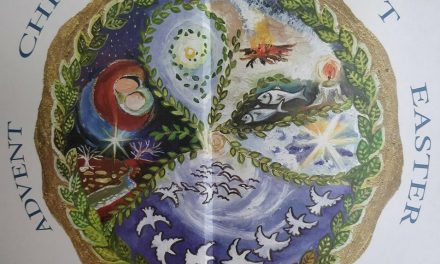Trinity Sunday began to be observed in England under St Thomas Becket in the 10th century and then spread to the rest of Western Christendom. Holy Trinity Sunday is the First Sunday after Pentecost, ushering in the season when the church hears about Jesus’ ministry and then about the church’s own ministry. Trinity Sunday is celebrated as symbolic of the unity of the God the Father, Son and Holy Spirit (Jn 3:1-17).
The endless paradoxes in the Athanasian creed: ‘not three eternals, but one eternal, not three uncreated, but one uncreated…’ may sound like some great riddle with tendency to glaze over. The doctrine of the Trinity is not just a later invention of Greek philosophy but a pointer to the simple faith of the Galilean fishermen. Trinity Sunday, can be fraught with vulnerable analogies. Water as solid, liquid, gas. Egg as shell, white, yolk. Person as parent, sibling, child. As we celebrate some of the most beautiful mysteries of our faith, the Trinity, Pentecost, and the Ascension, we are invited to look at our lives and communities with new eyes, and to welcome the Spirit that “renew[s] the face of the earth” into the dusty corners of our churches (Psalm 104:30). The Trinity calls us to redefine our expectations of God and to allow the Spirit to reveal new faces of herself. The Easter and Pentecost seasons close with the celebration of one of Christianity’s greatest mysteries: God as one, yet three. The reflection for us is the relations between the members of the Trinity which constitute a crucial way to understand not only God but God’s involvement in the life of the Church and the world. The Isaiah reading about the death of King Uzziah anchors our vision of the Trinity, set on the Lord of hosts and the throne of vast and awesome might (Is 6).
The application of Trinity as ‘not three, but one,’ point to an interdependent witness and template of all interactive reality in the life of faith. The Trinity provides us the perfect balance between unity and diversity, autonomy and mutuality, identity and community. The relationship is that ‘the Father is not consumed with Himself; He loves the Son and the Spirit. And the Son is not riddled with narcissism; he loves his Father and the Spirit. And the Spirit is not preoccupied with himself and his own glory; the Spirit loves the Father and the Son.’ Practically, the Trinity called us into oneness of life and mission, new space in the dance of love, to share the divine life, to be made gods, and to join in the work of redemption. The vision behind the Trinity is to make us temple of the divine presence, united to God, truly member of Christ’s own body. The ‘three-in-one’, when together, makes the whole. The Trinity is the epitome of integration and completeness. On this Trinity Sunday let us pray that we might, become more fully integrated and Christ-like people in Jesus name.










Recent Comments